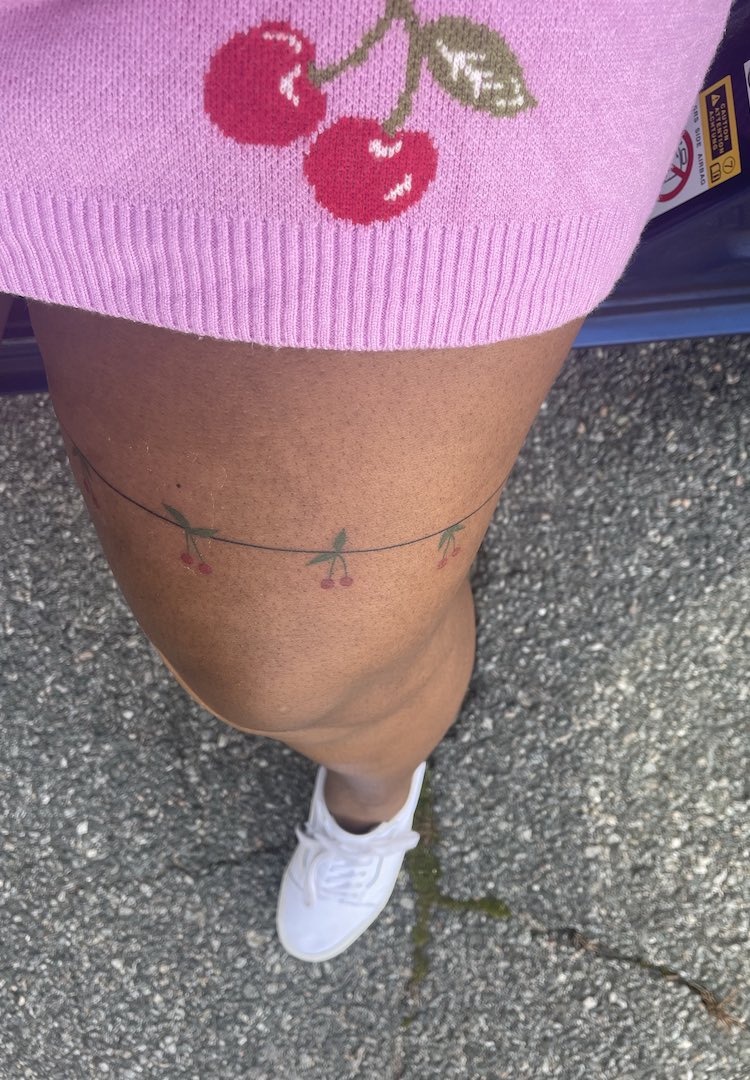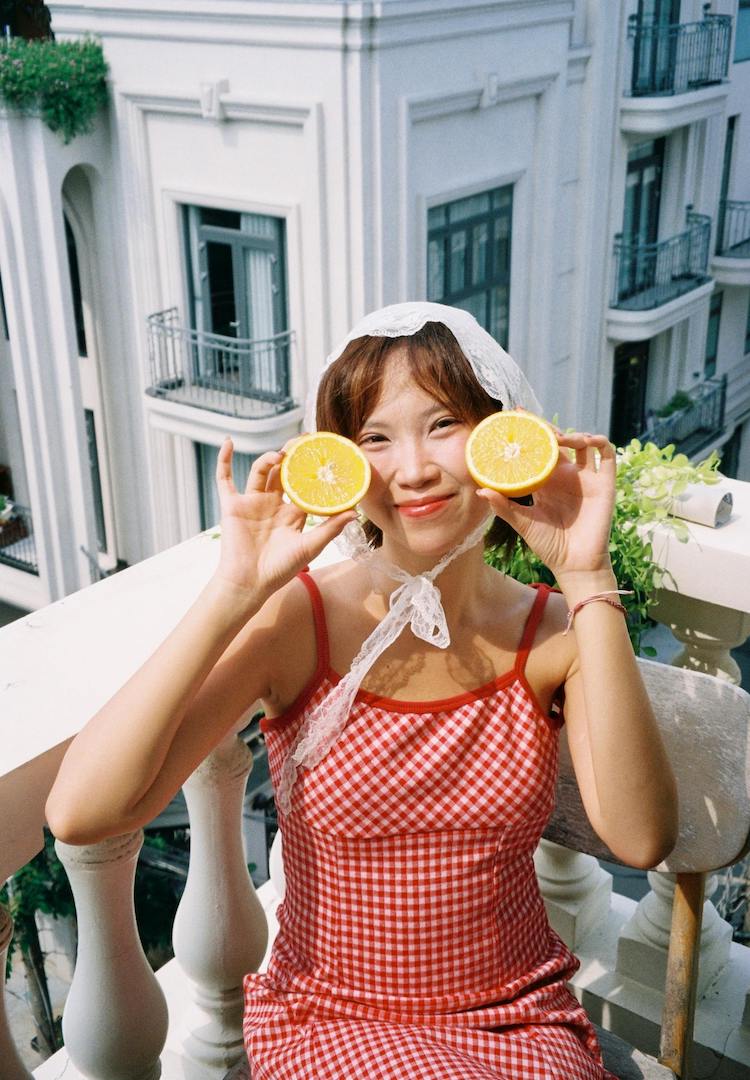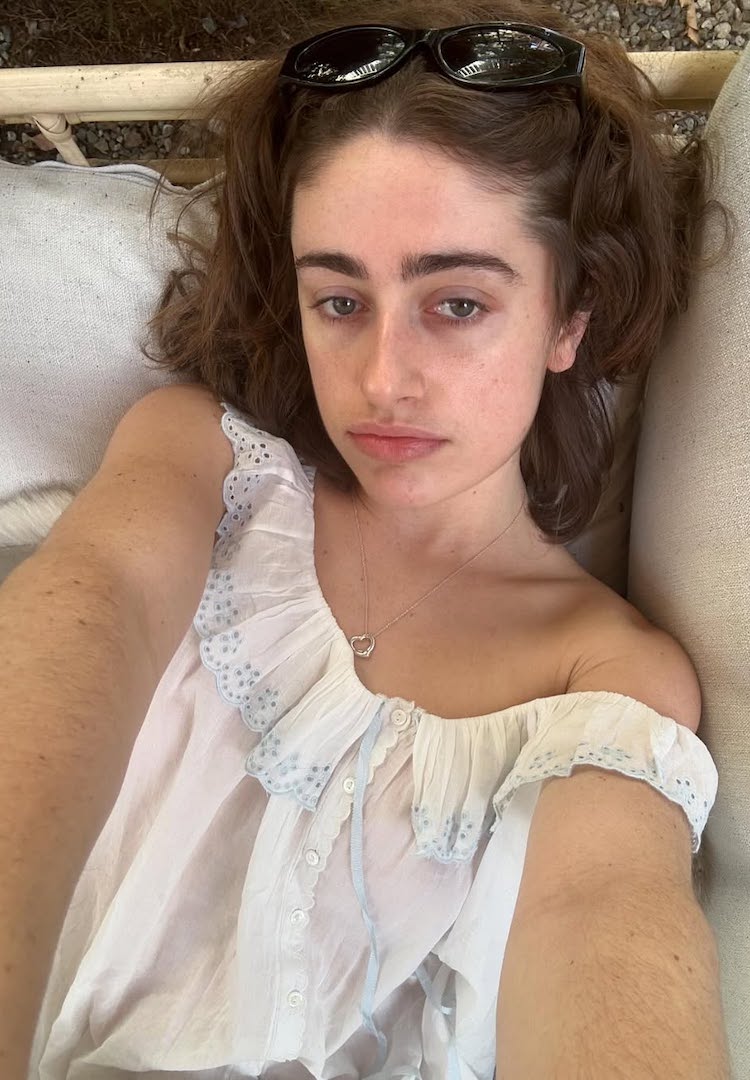When ‘healing your inner child’ sabotages your outer adult
words by Akira Kerr
Why meeting your younger self for coffee might not be that helpful.
If you were to meet the 15-year-old version of yourself at a cafe, what would you say? Would you be early? Would they be late? What would you order? What would they wear?
The ‘I met my younger self for coffee’ trend has probably made its way into your TikTok feed – or at least it’s all over mine. Catalysed by a melancholic poem by Jennae Cecelia, her original TikTok, and thousands of renditions that followed it have gone completely viral.
For more content like this, tap through to our Life section.
The trend sees creators comforting their younger selves, reassuring them that their future will turn out okay, and taking on the role of a guiding figure they needed growing up, but didn’t have.
To me, this trend fits into a larger movement on social media, bent on ‘healing our inner child’. Over the years, I’ve seen different iterations: videos depicting conversations between current and childhood photos, people filming themselves jumping on trampolines or playing in the snow with the caption ‘healing my inner child’, people putting together quirky outfits to match a photo of themselves at age five. Even Kendall Jenner confessed that she keeps a photo of herself as a child on her mirror in a clip that continues to circulate the internet.
As someone who attends regular therapy sessions, and coincidentally spoke to my therapist about my inner child a mere 24 hours before I pitched this article, I find it difficult to resonate with these trends. Imagining having a coffee with my younger self doesn’t feel in line with the acute sense of abandonment I feel when a friend simply doesn’t reply to my text for three hours.
Healing your inner child, according to Sydney-based clinical psychologist Phoebe Rogers, is about healing the wounds that come from unmet needs in childhood. Phoebe specialises in schema therapy, a discipline of psychology that focuses on how events in our childhood affect our actions as adults.
“In schema therapy, we talk about your inner child – or your vulnerable child – and being a healthy adult,” Phoebe explains. Overlapping with attachment theory, schema therapy has a lot to do with how we were nurtured by our parents or caretakers, and whether our emotions were validated by them.
Phoebe tells me that in times of high emotional stress, where we’re sad, anxious and have lost a sense of rationality, it’s often due to an unaddressed emotional wound from our childhood rearing its ugly head. “If we’re too much in our inner child wounds, they can really sabotage relationships and keep us very, very stuck,” she says.
So when it comes to meeting our younger selves for coffee, Phoebe tells me while she thought it was a cute trend, it might not actually be that helpful.
“These videos… people should know that they’re not a fix, and they’re not a solution,” she warns. If you’re talking to your inner child regularly, noticing patterns and triggers and trying to work on them, that’s where progress can happen. “[Talking to your younger self] once isn’t going to change anything deeply.”
As a generation, we’ve forged a new path where talking about shared psychological struggles are far more accepted than the reality our parents were raised in. We’re not alone in our anxiety, perfectionism, people pleasing tendencies, generational trauma and imposter syndrome. I oscillate between optimism that our generation is breaking the chain of silence on mental health issues, and scepticism as I see people meme-ify them to the point of being meaningless.
There’s a real danger in using buzzwords like ‘boundaries’ and ‘gaslight’ on social media, when we don’t have any real, deep understanding of them. Weaponising therapy-speak (I’m looking at you Jonah Hill) estranges us from real conversations about mental health.
For me, I’m relieved to see that the insecurities I hold within myself are relatable. But seeing hundreds of people expressing their same anxieties in short-form videos isn’t enough for a miracle cure. Working on them actively, with or without a therapist, is the only way to become a healthy adult.
Maybe the TikToks we’re seeing are just a drop in the stream of someone’s self-reflective therapy. But ultimately, the ‘meeting my younger self for coffee’ videos are always a little performative, and curated to leave something out – the tedious hard work. So as long as the coffee meet-up is consistent, and serving of your own wellbeing, not just the desire for attention, by all means get yourself a little treat, and one for your inner child too.
For more on healing your inner child, read this.













